|
The tragedy of September 11, 2001, left an indelible mark on our society. The horrifying events of that day, witnessed by millions both directly and via media, led to a surge in mental health issues such as post-traumatic stress disorder (PTSD), depression, anxiety, and substance abuse. Nearly every American remembers where they were on that fateful morning, illustrating the deep collective trauma experienced nationwide. As we acknowledge the enduring psychological impact of 9/11, it is vital to highlight the avenues of healing and recovery available. Greater Houston Counseling Services (GHCS), with years of experience in the mental health field, stands as a pillar of support, offering tailored therapies and interventions designed to aid those grappling with the long-term psychological repercussions of traumatic events, including the experiences stemming from 9/11. Understanding the Psychological Footprint of 9/11 In the aftermath of 9/11, many individuals, especially those who lost loved ones or were directly exposed to the attacks, faced immense psychological distress. This distress manifested as:
The GHCS Approach to Healing At GHCS, we foster an environment of healing through scientifically-backed treatments and coping strategies that include:
A Safe Harbor with GHCS Our mission at GHCS is to be a safe harbor for those on their healing journey, offering a compassionate space to work through the lingering psychological impacts of 9/11. We are committed to helping you navigate the complex path of recovery, building resilience and nurturing hope, one step at a time.
As we remember this significant moment in our history, it is essential to also note the pathways to recovery and healing available to every individual affected. There is a route to healing, and GHCS is here to guide you through it. Let us foster a spirit of community, resilience, and recovery. Remember, it is never too late to seek help. For more information on our services, please visit our website. Let’s heal, together.
2 Comments
As we observe Birth Trauma Awareness Week, at Greater Houston Counseling Services, PLLC, we want to reach out to all those who have experienced or are dealing with the aftermath of birth trauma. We want you to know that you're not alone and that your feelings, your fears, and your pain are valid. Birth trauma is a profound event that can have significant physical and psychological effects on mothers. It's often overlooked or minimized in conversations surrounding childbirth, leaving many women to silently grapple with their experiences. However, it's essential to shine a light on this topic, fostering a more inclusive and empathetic dialogue about childbirth. Birth trauma can manifest in many forms. It could be a physically traumatic experience such as an emergency C-section, a painful labor, or complications post-delivery. Alternatively, it can be emotional trauma stemming from feeling disempowered, unheard, or dismissed during childbirth, or anxiety over the baby's wellbeing. While every woman's experience with birth trauma is unique, common symptoms may include post-traumatic stress disorder (PTSD), anxiety, depression, feelings of shame or guilt, difficulty bonding with the baby, or fear of future childbirth. So, how do we navigate through this? Firstly, acknowledging your trauma is a brave step towards healing. Remember, it's okay to grieve the birth experience you wished you'd had. It's important to understand that it's not your fault, and it doesn't define you as a mother. Open communication is vital. If you're comfortable, share your experiences with supportive family members, friends, or communities who have had similar experiences. This can be an essential part of the healing process, allowing you to feel heard and understood. Professional support, such as therapy or counseling, can be incredibly helpful. At Greater Houston Counseling Services, we offer empathetic and non-judgmental support to help you process your trauma and navigate your path to recovery.
This Birth Trauma Awareness Week, we urge you to reach out if you're struggling. Your mental health matters, and seeking help is a testament to your strength. Remember, it's okay to ask for help, and it's okay to prioritize your healing. Your journey matters, and we are here to support you every step of the way. |
Archives
January 2024
Categories
All
|
|
|
Share This Page
Greater Houston Counseling Services
"Making your day a little easier" Phone: (832) 717-7166 |
Four locations across the Houston area |

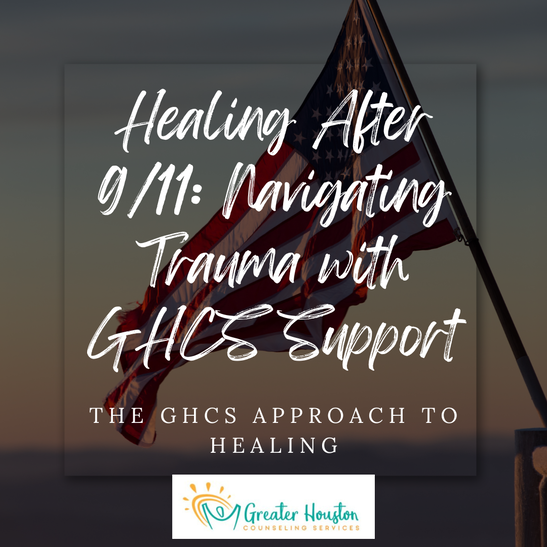
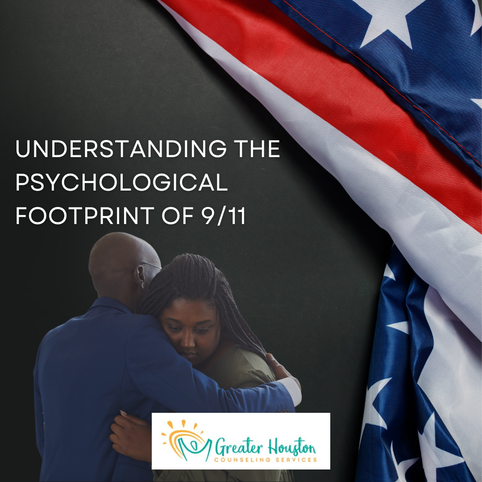


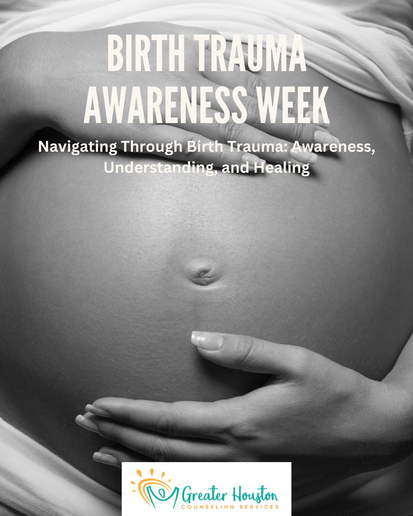
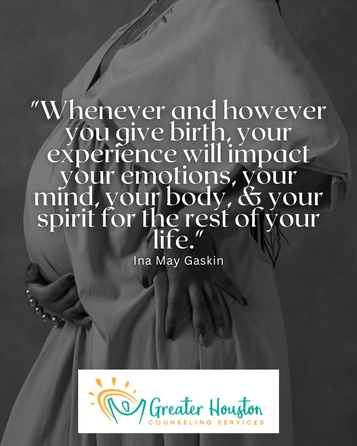
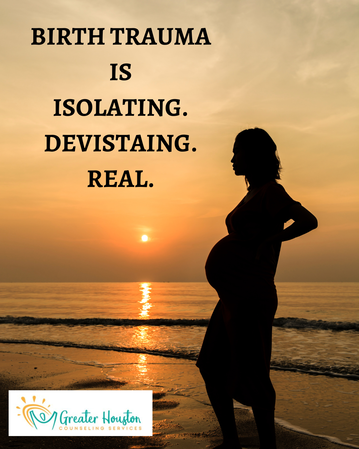
 RSS Feed
RSS Feed